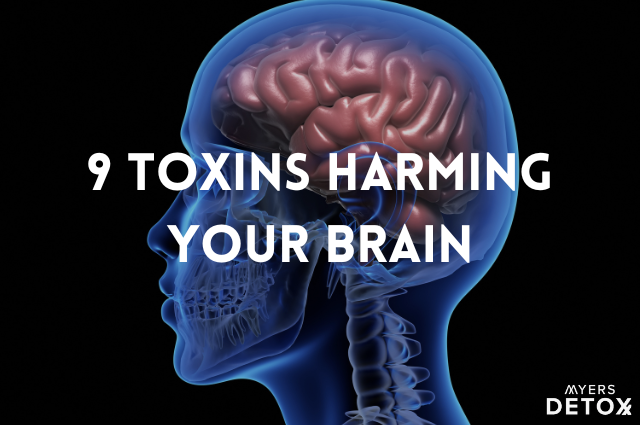At face value, it seems that losing weight is about eating right and getting plenty of exercise. Many don’t realize that our hormones play the most important role in determining whether we lose weight. Your weight loss efforts are doomed to fail if you are not addressing the underlying biochemical reasons you are eating or your body is resistant to weight loss.
Ghrelin and leptin are hormones that hold the key to your appetite and weight loss. Ghrelin signals hunger while leptin gives the feeling of fullness. If these hormones are out of balance, your ability to lose weight is nearly impossible because it is very difficult to fight a strong urge to eat or deal with not ever feeling full and satisfied.
You cannot overcome biology. Anyone trying to lose weight must stick to diet and lifestyle habits that optimize these hormones. Otherwise, your appetite will spiral out of control and you’ll gain weight or have resistant weight loss.
Ghrelin
Ghrelin is the hormone responsible for making us hungry. If you can lower ghrelin, you will reduce hunger and cravings allowing you to naturally eat less. Ghrelin levels play a big role in determining how quickly hunger comes back after we eat. Some have disorders where they produce too much ghrelin and they can never stop eating! Hopefully that’s not you.
Normally, ghrelin levels go up dramatically before you eat; this signals hunger. They then go down for about three hours after the meal. Research shows that lowering levels of ghrelin leads to decreased body fat.
The ghrelin hormone not only stimulates the brain giving rise to an increase in appetite, but also favors the accumulation of fat located in the abdominal region – considered to be the most harmful. This is the conclusion of research undertaken at Metabolic Research Laboratory of the University Hospital of Navarra, published recently in the International Journal of Obesity.
Since ghrelin promotes the formation abdominal fat near the liver, it also promotes fatty liver and increases the risk of developing resistance to insulin. This is the recipe for metabolic syndrome. Definitely worth some biohacking to get this hormone under control.
Leptin
Leptin is your appetite suppressor – the hormone that signals your body that you’ve had enough to eat and is a key player in optimizing weight loss. Leptin is made in the fat tissue and plays a key role in regulating energy intake and expenditure, including appetite and hunger, metabolism, and behavior. Many foods can either block or increase leptin. The key is knowing which foods to avoid and which to consume.
Weight loss hormonesLeptin resistance has been hypothesized by researchers as possibly caused by specific nutrients uncommon throughout our evolution. The proposed problematic nutrients include lectins (found in grains and legumes) and fructose found in fruit.
Leptin resistance will also result from a diet high in energy-dense low-nutrient foods including soda, refined flours, candy, or any form of sugar (honey, maple syrup, etc). These foods should be limited in anyone trying to lose weight since they negatively impact all of your hormones.
Although leptin reduces appetite, obese individuals generally exhibit an unusually high circulating concentration of leptin. These people are said to be resistant to the effects of leptin, in much the same way that people with type 2 diabetes are resistant to the effects of insulin. This is called leptin resistance. The pathway of leptin control in obese people is flawed in some way so that the body does not adequately receive a signal of satiety after eating.
Leptin levels are directly proportional to body weight. That being said, the mere fact that leptin resistance is extremely common in obese individuals suggests it may simply be an adaptation to excess body weight. It’s a catch-22. You need to lose weight in order for your body to get the message that you’re full after eating! As you lose weight, your body will become more sensitive to leptin.
Biohack your Hormones
Is your appetite out of control? Biohack your way to weight loss! Here are a few biohacking tips to keep ghrelin at bay and increase leptin:
- Avoid MSG. MSG (monosodium glutamate) makes your appetite spiral out of control. Your body loses its ability to tell that it’s full because MSG suppresses leptin. You end up eating more than you normally would and get hungrier sooner. MSG is in ALL fast food and most processed food, even the healthy ones at Whole Foods. For more information, see my blog post Hidden MSG.
- Avoid Fructose. Fructose prevents leptin and insulin from elevating to normal levels after a meal, while increasing ghrelin and triglycerides. This can lead to a dramatic increase in calorie consumption. While high-fructose sweeteners in soft drinks and snack foods are the biggest concern, it’s also important to note that fruit, and especially fruit juice, consumption can lead to these shifts as well. Some authors suggest keeping fructose intake under 25 grams per day (about one piece of fruit).
- Avoid Very-Low-Calorie Diets (1000 calories or less day). By eating more food, you’ll avoid the diet hormone surges that trigger uncontrollable hunger and the inevitable weight gain that follows.
- Eat every 4 hours. Ghrelin is produced and secreted on a four hour schedule. In order to keep ghrelin low you need to eat on a schedule every 3-4 hours. Leptin level is decreased after short-term fasting (24–72 hours). I’m not a big fan of fasting except for intermittent fasting. This entails eating your food within an 8 hour period during the day and not eating for the next 16 hour period. This is a very effective weight loss tool.Vegetables for weight loss
- Eat high fiber foods. Ghrelin levels remain high until food stretches the wall of your stomach, making you feel full. High volume, low calorie, nutrient dense foods reduce ghrelin and increase leptin levels long before you have overeaten. A salad or vegetable soup full of fiber and water stretch your stomach more than processed food.
- Get at least 7 hours of sleep every night. Less than 7 hours of sleep has been associated with higher ghrelin levels, decreased leptin, increased hunger, and higher body weight in research studies. This is why people who sleep less are heavier than those getting adequate sleep.
- Eat animal protein at every meal. Protein takes longer to digest, and studies show it is the most effect food group at lowering ghrelin and losing weight. Research also suggests that protein improves leptin sensitivity.
- Reduce stress. Stress is associated with higher body weight and ghrelin production. Reduce stress with short walks, meditation, taking a bath, yoga and listening to soothing music.
- Increase Omega-3. Eat a diet rich in omega-3 fatty acids to boost leptin. People who are overweight release too much of a group of molecules that the body uses to combat inflammation. These molecules reduce leptin’s ability to communicate with the brain and are the primary cause of leptin resistance. Omega-3 fatty acids decrease the production of these molecules by reducing inflammation in the body. Foods high in omega-3 fatty acids include grass fed meats, walnuts, salmon, anchovies, sardines, mackerel, trout, chia seeds, flax seeds, summer squash and kale.
- Heal Your Gut. Healthy guts can help control appetite and body weight. Conversely, leptin and ghrelin imbalances have been observed in gut disorders like colitis. Take probiotics and eat bone broths to heal the gut. Foods containing inulin (garlic, onions, leeks, artichokes, sunchokes, bananas) feed good gut bacteria, promoting their replication, and are more effective than supplementing probiotics. Anything that helps intestinal health should be helpful for appetite issues. You can find the best probiotics on the market in the Myers Detox Store.
Leptin and ghrelin have evolved as a highly effective mechanism to keep us from starving to death in times of famine. Poor diet and lifestyle lead to the ultimate failure of this delicate signaling system, making weight loss an impossible task. Master your appetite hormones by following a naturally evolved diet like my Modern Paleo diet and observe proper meal timing to reap the benefits of restored health and permanent weight loss.









